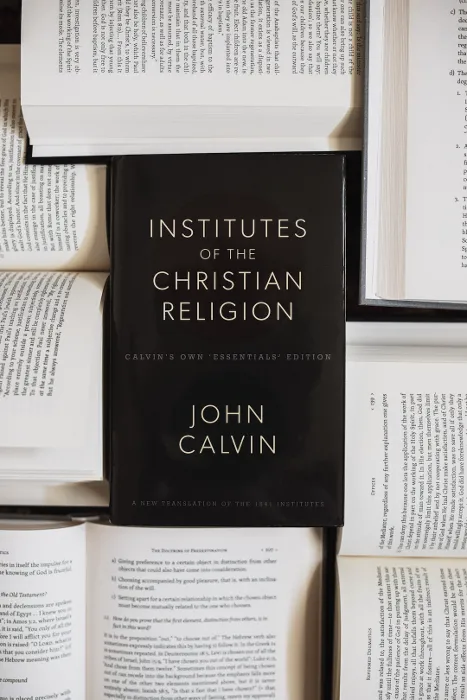5 Key Doctrines of Reformed Theology

Disclosure: Some of the links in this article may be affiliate links, which can provide compensation to me at no cost to you if you decide to purchase. This site is not intended to provide financial advice and is for entertainment only.
5 Key Doctrines of Reformed Theology
Reformed theology is a branch of Protestant Christianity that emphasizes the sovereignty of God, the authority of Scripture, and the depravity of humanity. It emerged in the 16th century during the Protestant Reformation and has since become a significant theological tradition. In this article, we will explore five key doctrines of Reformed theology.
1. Total Depravity
The doctrine of total depravity teaches that all humans are born with a sinful nature and are incapable of choosing God on their own. This means that we are all spiritually dead and unable to respond to God's call without his intervention. The Bible teaches that "all have sinned and fall short of the glory of God" (Romans 3:23) and that "the wages of sin is death" (Romans 6:23).
Reformed theologians believe that salvation is entirely a work of God's grace and that we cannot earn it through our own efforts. We are saved by faith alone, which is a gift from God (Ephesians 2:8-9). This doctrine emphasizes the need for humility and dependence on God.
2. Unconditional Election
The doctrine of unconditional election teaches that God chooses who will be saved based on his own sovereign will, not on any merit or foreseen faith on the part of the individual. This means that God's choice is not based on anything we do or don't do, but solely on his grace and mercy.
Reformed theologians believe that God's election is not arbitrary, but is based on his perfect wisdom and love. This doctrine emphasizes the sovereignty of God and the fact that salvation is entirely a work of his grace.
3. Limited Atonement
The doctrine of limited atonement teaches that Christ's death on the cross was intended to save only the elect, not all humanity. This means that Christ's sacrifice was not a potential atonement for all people, but a definite atonement for those whom God has chosen to save.
Reformed theologians believe that Christ's death was sufficient to save all people, but efficient only for the elect. This doctrine emphasizes the particularity of God's grace and the fact that salvation is not based on anything we do or don't do, but solely on God's choice.
4. Irresistible Grace
The doctrine of irresistible grace teaches that when God calls someone to salvation, they cannot resist his grace. This means that God's grace is effective in bringing about salvation in the lives of the elect.
Reformed theologians believe that God's grace is not merely an offer of salvation, but a powerful and irresistible work in the heart of the believer. This doctrine emphasizes the fact that salvation is entirely a work of God's grace and that we cannot earn it through our own efforts.
5. Perseverance of the Saints
The doctrine of perseverance of the saints teaches that those whom God has chosen for salvation will persevere in faith until the end. This means that true believers cannot lose their salvation, but will continue to trust in Christ and follow him throughout their lives.
Reformed theologians believe that God's grace is sufficient to keep believers from falling away and that he will preserve them until the end. This doctrine emphasizes the security of the believer and the fact that salvation is entirely a work of God's grace.
Conclusion
Reformed theology is a rich and complex tradition that emphasizes the sovereignty of God, the authority of Scripture, and the depravity of humanity. These five key doctrines are central to Reformed theology and help to shape its distinctive approach to Christian faith and practice. By emphasizing the need for humility, dependence on God, and the sufficiency of his grace, Reformed theology offers a powerful vision of the Christian life that is both challenging and inspiring.
Disclosure: Some of the links in this article may be affiliate links, which can provide compensation to me at no cost to you if you decide to purchase. This site is not intended to provide financial advice and is for entertainment only.